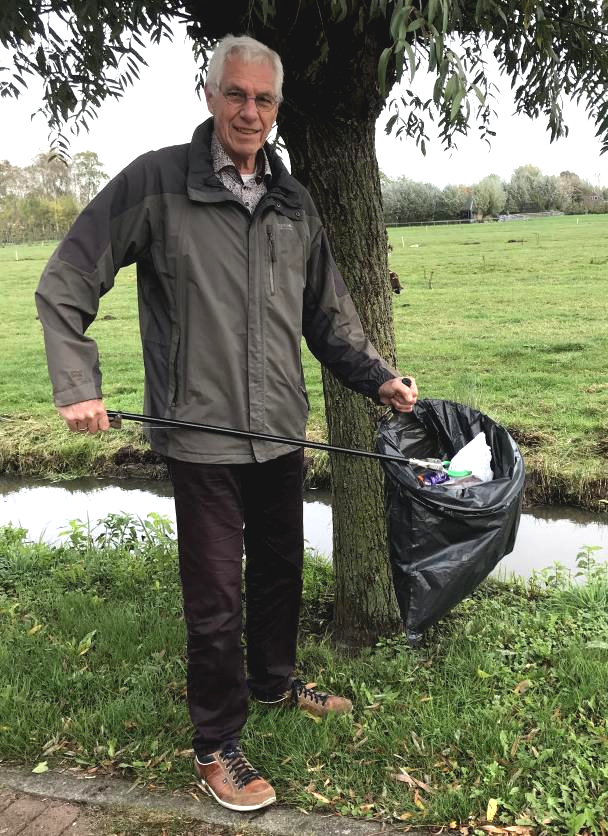It was a chance encounter that led to the formation of De Lekprikkers. One of the initiators of this enthusiastic group of litter pickers is Rob de Wit from Ameide. After his retirement, Rob decided to volunteer. 'During my long walks in the outskirts of Ameide, I noticed how much litter there was everywhere, especially a lot of plastic. It annoyed me. Not only did it give a messy look, but it is also harmful to nature.' During a walk, Rob met someone who was busy cleaning up litter. What followed was an inspiring conversation in which they shared the same ideas. This meeting led to the formation of De Lekprikkers, a group dedicated to a beautiful and clean area near Ameide and Tienhoven on the Lek.
Cosy and fun volunteering

As the number of volunteers grew, organisation became important. 'We decided that each volunteer would be responsible for a fixed area. That way, we could make our living environment free of litter. Over time, the number of club members grew, and we were able to expand our area of operation.'
'During the national clean-up days, we involve both primary schools in our action. We work well with the municipality and especially with Waardlanden for practical support to, for example, place bins and provide supplies such as grabbers, bin bags and vests.'
Noticeable result
'There are now more than 40 active volunteers in the area near Ameide and Tienhoven on the Lek,' says Rob. 'Some go out alone, others in groups. Everyone chooses their own time of day. If it rains, they just postpone the clean-up action for a while. As long as the work gets done in the end. Once every 3 or 4 weeks is enough.'
The results of the efforts are noticeable, with litter pickers sometimes finding little litter during their clean-up rounds. 'Still, cigarette butts remain a problem. These are harmful to the environment because the pollutants take a long time to break down. However, the number of plastic bottles has decreased. This is probably due to the deposit system,' Rob thinks.
Although The Lekprikkers have achieved a lot, Rob is concerned about pollution along the riverbank, which is mainly caused by ships and tourists. There are also successes: One pricker found many wrappers that are very harmful to the environment. He contacted the producer. Now wrappers are used that are much less harmful to the environment.
Together responsible for nature
'It is not only the government's turn to reduce environmental pollution. This also requires our own efforts. It gives me satisfaction to contribute to this. And this feeling is shared by all Lekkerprikkers. We all feel responsibility for nature. Together we can make our world a little cleaner and more beautiful.'








